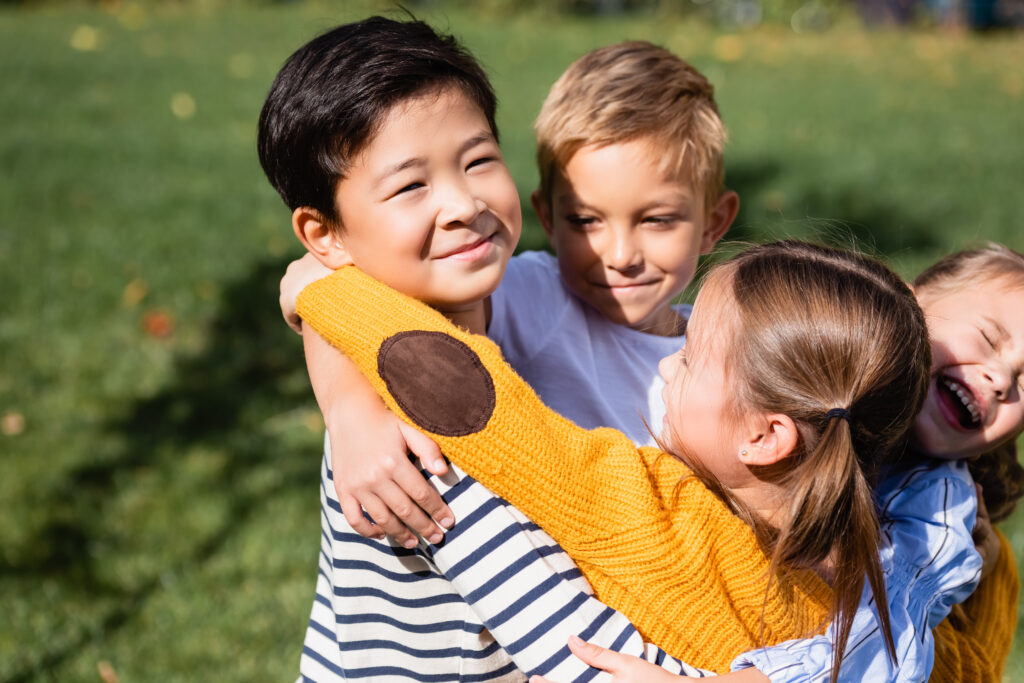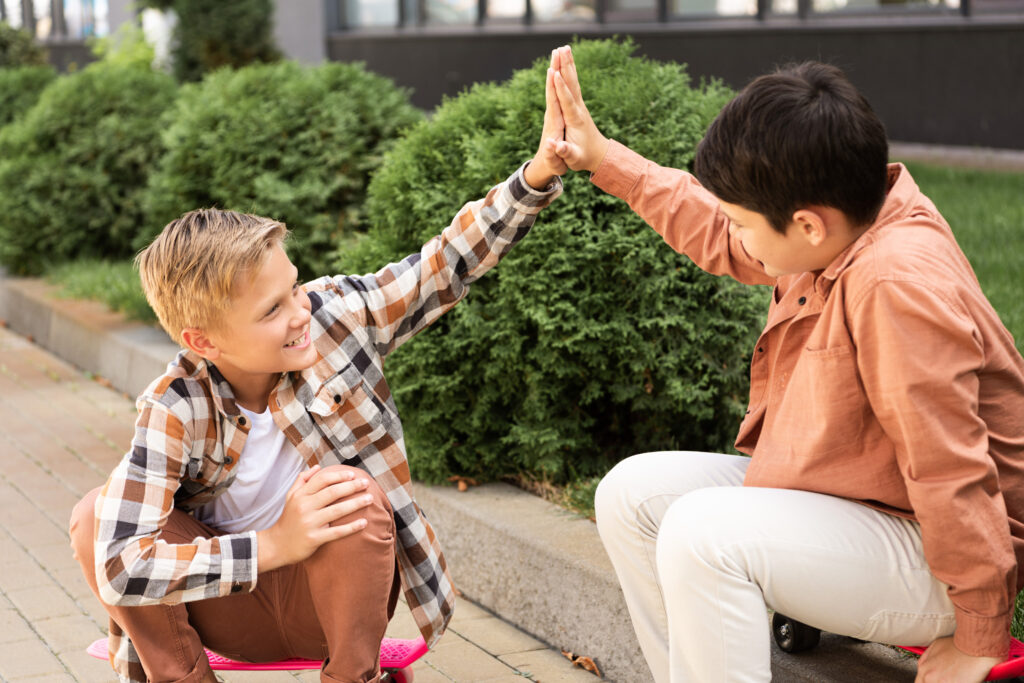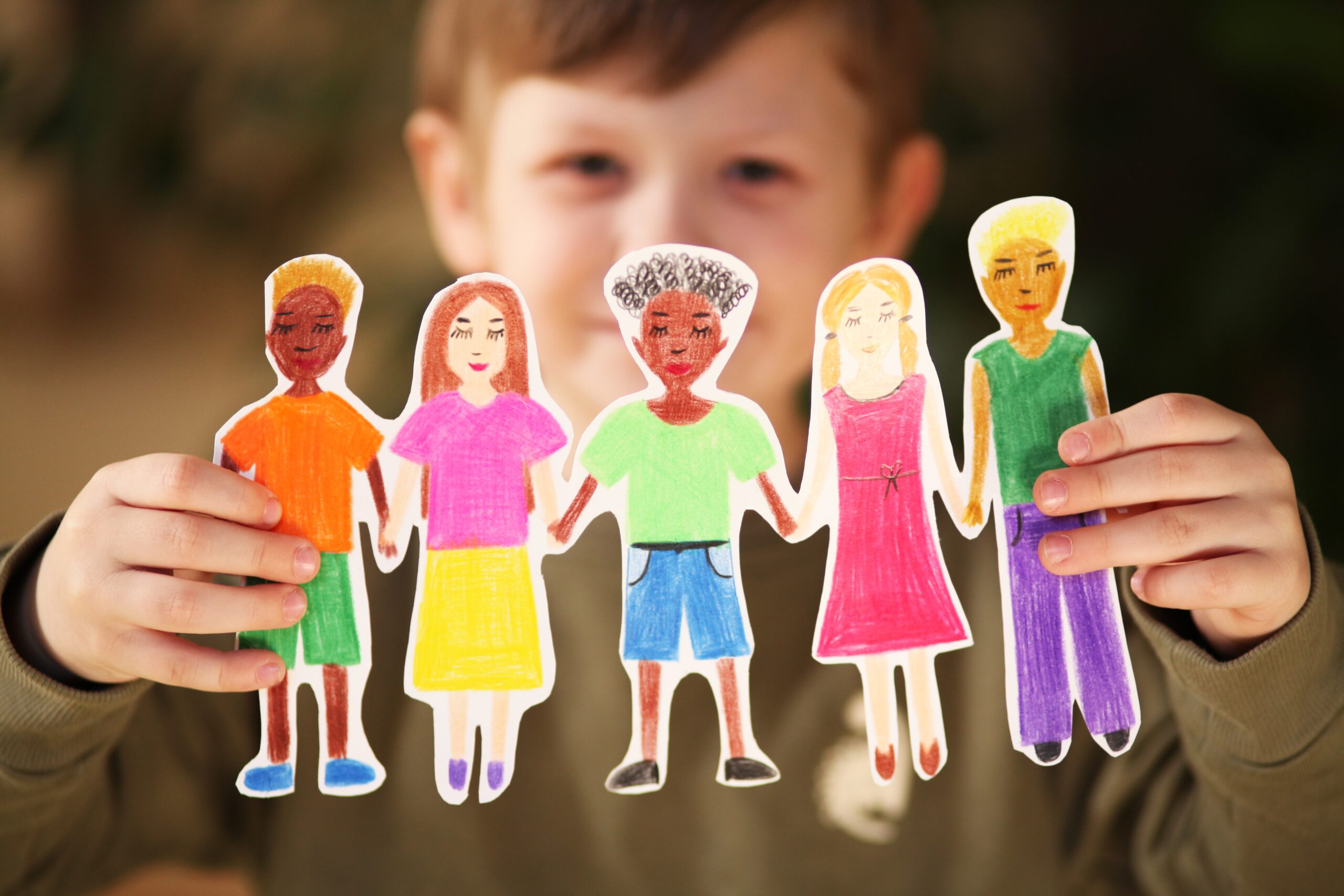In today’s fast-paced world, fostering empathy in children is more critical than ever. By instilling the ability to understand and share the feelings of others, we help shape a future generation of compassionate leaders and kind-hearted individuals. Whether at home, in school, or through daily interactions, fostering empathy in children not only strengthens their social skills but also contributes to their emotional well-being.
The Essence of Empathy: A Comprehensive Understanding

Fundamentally, empathy is the emotional glue that unites people, creating bonds across the wide gaps in viewpoints and life experiences. It is the silent whisper of understanding that says, “I see you, I hear you, and I stand with you.”
Human connection is fundamentally based on empathy, which is commonly defined as the capacity to comprehend and experience another person’s emotions. It extends a hand of comprehension and compassion to those in need, going beyond simple sympathy. However, how can we help our kids develop this important quality?
Cultivating this trait in our children requires a blend of patience, intention, and strategic action. Establishing a space where feelings are accepted, talked about, and acknowledged is the first step. Children can pick up the basic skills of empathy from an early age by being exposed to a range of situations and emotions in their environment and in the stories we tell them.
The Power of Modelling: Setting a Good Example
Children are astute observers, the adage “actions speak louder than words” holds profound truth in the realm of empathy education. The main creators of our children’s moral compass are us as parents. Our actions speak volumes, shaping their perceptions of the world and influencing their behaviours. In order to foster empathy in our kids, we need to set a good example for them by acting with kindness, compassion, and understanding towards others. Our actions teach our kids important lessons in empathy, whether it’s lending a helping hand to a neighbour in need or paying close attention to a friend’s problems. Empathic behaviour is something that modern parents must actively practice, not only inside our homes but also as engaged members of the larger community.
The Language of Empathy: Developing Emotional Intelligence
Raising empathy warriors requires developing emotional intelligence as a fundamental component. This entails teaching kids how to identify, comprehend, and control their own emotions as well as how to react to and recognise the emotions of others.

Building emotional intelligence is more important than ever in the digital age when screens frequently act as a barrier to real human connection. We enable our kids to empathically comprehend the emotions of others by teaching them to identify and categorise their own emotions. Talk to them honestly and openly about their feelings, acknowledging their experiences and offering a secure environment in which they can express themselves. We teach our kids the language of empathy via this conversation, empowering them to handle the complexity of human emotions with compassion and grace.
Innovative approaches such as emotional coaching, where parents guide children through their emotional responses and problem-solving processes, have shown promising results. Promoting mindfulness techniques can also help kids become more adept at emotional regulation by giving them the skills to stop and think through how they react to other people’s emotions.
The Role of Play: Building Bridges of Understanding
Play is a powerful medium through which children learn about themselves and the world around them. Children can learn empathy through play, which gives them the chance to put themselves in other people’s shoes and view the world from a variety of viewpoints. Encourage your kids to engage in imaginative play that addresses compassion and empathy. Some ideas include role-playing games in which kids assume the roles of carers, rescuers, or peacemakers. Playing cooperative games fosters a sense of camaraderie and support among players, emphasising the value of taking into account others’ sentiments and working towards common goals. Including toys and games that celebrate diversity and inclusivity can help kids get a deeper understanding of the wide range of experiences that people have. Our kids pick up the skill of empathy naturally via play, incorporating compassion into every aspect of their daily lives.
Practicing Empathy: Making a Difference in the World
The ultimate goal of developing empathy is to put it into action. Encourage your kids to participate in community service and acts of compassion, such as planning food drives or clean-ups of the environment. Engaging in such activities not only reaffirms the value of empathy but also cultivates a strong sense of social responsibility and a conviction that one can make a difference. By utilising technology, global awareness programmes and online volunteer opportunities can offer creative ways for kids to make meaningful contributions to society from a young age. By fostering a sense of empathy and social responsibility, we equip our children to become compassionate leaders who champion the values of kindness and understanding.
Embracing Diversity: Honouring Our Differences

It’s more crucial than ever to embrace diversity in our increasingly interconnected world. Teach your children to celebrate the rich tapestry of humanity, embracing differences in culture, race, religion, and identity with open hearts and open minds. Their comprehension and appreciation of the world are expanded when they are exposed to cultures, languages, and customs that are distinct from their own. Multicultural books, films, and other media that offer windows into the lives and viewpoints of others can help with this. Following such exposures, discussions ought to promote empathy and critical thinking, helping kids see beyond their immediate environment and developing an inclusive worldview. We plant the seeds of empathy in our children that will grow into a future of peace and harmony by teaching them to value difference.
The Long Path Ahead: Patience and Persistence in Nurturing Empathy
Raising kindness warriors is a journey that requires patience, persistence, and a deep commitment to the values of empathy and compassion. It’s about appreciating the little things in life, like a child sharing a toy for the first time or a teenager defending a friend. Every accomplishment serves as evidence of the effectiveness of empathetic parenting and as a ray of hope for a future filled with kindness, understanding, and compassion.
Remember that developing empathy is a lifetime endeavour rather than a destination. It calls for strength, perseverance, and most importantly, love. By fostering empathy in our kids, we enable them to grow up to be kind leaders who motivate the world to change for the better.
Let’s hold to the conviction that every child has the capacity to be a force for good in the world as we negotiate the complexity of today’s environment. By providing direction, inspiration, and consistent assistance, we can foster this capacity and raise a generation of compassionate leaders equipped to lead with grace and empathy. The world awaits the kindness warriors of tomorrow—let us raise them with love, courage, and unwavering faith in the power of empathy.
Visit our YouTube channel for pregnancy tips and support for expecting mothers.


Downloaded the 188bet88betapp the other day, and I’m proper impressed. Smooth as silk, and I can chuck a tenner on the footy while I’m waiting for the kettle to boil. Good stuff! Get the app here: 188bet88betapp
Alright, 6886winbet, let’s give it a shot! Heard some buzz, gonna see what the fuss is about. Fingers crossed! Check it out here: 6886winbet
PGAsiaCasino is where the action’s at! Loads of choices and decent payouts. Give it a spin, you might just get lucky: pgasiacasino
Melbetonline seems to be offering the full Melbet experience. Worth exploring if you want the proper online treatment, you know? Jump in and grab the advantages you can see for yourself: melbetonline
Gave AF888 a quick glance. The interface is clean and easy to navigate, even for a newbie. Found a couple of interesting promotions too. Worth a look! Visit here: af888
Dice games are all about calculated risk, aren’t they? It’s fascinating how probability plays out! Speaking of fun platforms, I checked out jljl55 login – their playful approach to gaming, like a vibrant jungle, is a nice touch. Seems secure too, which is key! 😊